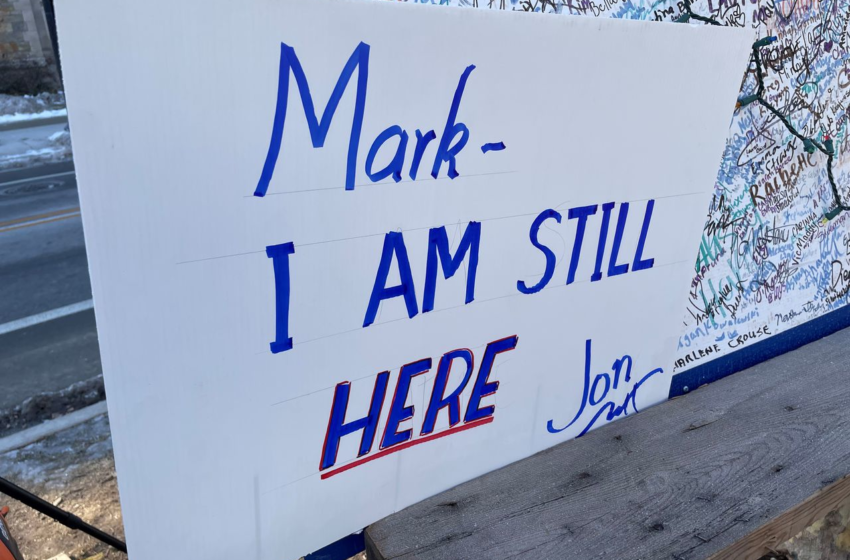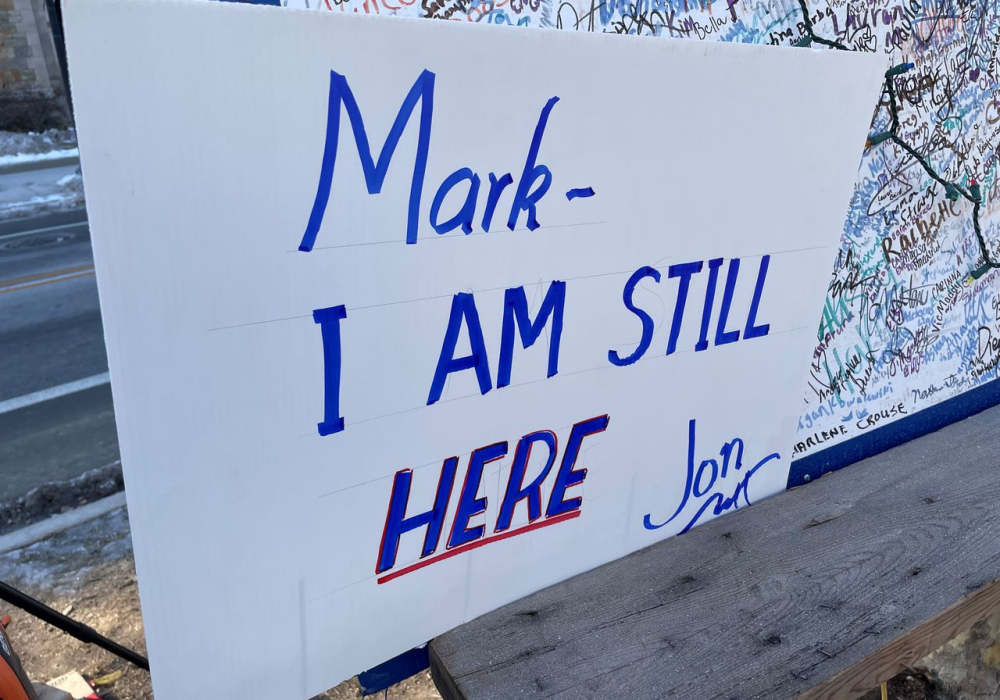ANN ARBOR, MI – University of Michigan President Mark Schlissel was fired for breaking the same rule he announced and implemented this summer.
At the July Board of Regents meeting, he announced an overhaul of sexual misconduct policy changes, particularly the prohibition of relationships between subordinates and supervisors. There would be zero tolerance for someone in a leadership position to “solicit a personal or romantic relationship with someone they have a supervisory authority or career influence over,” he said at the time.
“That’s exceptionally important because of the power dynamic,” he said on July 15. “It makes it difficult sometimes for folks to effectively say no, then you put an employee in a very difficult circumstance.”
On Saturday, Jan. 15, the regents removed Schlissel for cause as president after investigating an inappropriate relationship he had with a university employee. The irony was not lost on members of the UM community, particularly survivors of sex abuse, lawyers litigating against UM and student leaders.
Read more: University of Michigan fires president for inappropriate relationship with employee
“When you’re covering something up, it’s hard to clean the past,” said Jon Vaughn, a former UM football player who is part of the lawsuit by survivors of the late Dr. Robert Anderson against UM.
The regents took the appropriate action, said UM Central Student Government President Nithya Arun. She also remembers when Schlissel announced the policy change and found this development “shocking,” but ultimately the correct action.
“It’s come full circle,” she said.
Meanwhile, Vaughn found Schlissel to be “inconsistent” as a leader.
“Attitude reflects leadership,” he said.

President of the University of Michigan Mark Schlissel at the groundbreaking of the $920M adult inpatient hospital at UM Friday, Oct. 25 2019.Jenna Kieser
Legal and policy ramifications
Vaughn and hundreds of survivors, many identified as John Doe, filed a federal lawsuit in June 2020 over UM’s alleged role in Anderson’s abuse. Almost 1,200 rapes reported to UM last year were related to Anderson’s abuse, according to a campus safety report.
The case has been in “court-guided mediation” since October 2020. Some attorneys expressed that Schlissel’s removal is a step in the right direction.
Timeline of the Dr. Robert Anderson abuse scandal at University of Michigan
His inappropriate relationship shined a light on UM’s “deception” into “thinking they are decades beyond the Anderson era of sexual abuse,” said Parker Stinar, an attorney representing 200 Anderson survivors.
“In 2021, in the heat of Schlissel’s sexual misconduct, in which the regents were made aware, they tried to manipulate the public into thinking the culture at UM has changed by implementing new sex abuse policies,” he said, adding that UM ‘hasn’t changed.”
The regents announced Schlissel’s removal while releasing 118 pages of emails between him and the subordinate. In the board’s letter to Schlissel, they acknowledge the hypocrisy of his conduct versus his misconduct reform efforts.
“Your conduct…is particularly egregious considering your knowledge of and involvement in addressing incidents of harassment by UM personnel,” the letter states, “and your declared commitment to work to ‘free’ the University community of sexual harassment or other improper conduct.”
The board’s response saw praise from some in the UM community, including prominent author and UM athletics historian John Bacon.
“Kudos to UM’s PR response so far,” Bacon wrote on Twitter. “Wise to release enough emails to show why Regents fired Pres. Schlissel immediately. Yes, dicey issues, but (probably) did him a favor. If not spelled out, conspiracy theories run wild: embezzlement, fraud, assault, etc.? Actual reason far more basic.”
Even Michigan Attorney General Dana Nessel, a UM alumna, weighed in, offering both a critique of Schlissel’s conduct, as well as his methods of flirtation revealed in the emails.
“Abusing one’s position of power to engage in a romantic relationship with a subordinate is never appropriate,” she wrote on Twitter. “But also, ‘Can I lure you to visit with the promise of a knish?’ is likely the worst pick-up line of all-time.”
That exchange references an October 2019 email interaction between Schlissel and the subordinate.
A class-action lawsuit headed by UM senior Josephine Graham aims for federal courts to force UM to implement further sexual misconduct policy changes. Attorneys representing Graham declined to comment on how the Schlissel development changes negotiations, but that it emphasizes the need for reforms.
“This further highlights the need for institution-wide changes around these issues that involves input from all stakeholders,” said Annika Martin, co-lead counsel representing survivors and students in the class-action lawsuit.
A federal judge is scheduled to decide if that case goes to oral arguments in a March hearing.
Future conversations with a new leader
One method to dislodge the legal stalemate in the Anderson litigation has included Vaughn camping in front of Schlissel’s house since Oct. 8, 2021 in an effort to force a personal conversation with the now-former president.
Read more: Legal stalemate: Late University of Michigan doctor sex abuse scandal approaches 3rd year
Even though Schlissel will soon not live at the South University Avenue dwelling, Vaughn will continue a relay system so at least one survivor is at the encampment. Vaughn hopes interim President Mary Sue Coleman will speak to him at least once, something Schlissel refused due to the mediation.
“Can you implode the entire structure of what is supposed to be the offices that ensure student safety?” Vaughn said he wants to ask Coleman. “Because they all completely failed. Also, just start having a real dialogue with students and student groups, professors and community survivors.”
Coleman, who was the university’s president for 12 years ending in 2014, will serve in an interim role until at least this summer. Arun acknowledged the interim status likely limits the amount of reform Coleman can do, but offered a few basic priorities to consider.
“The most glaring issue is sexual misconduct reform,” Arun said. “That is exemplified by the reason for which President Schlissel got fired. We really need to uproot our current system of supporting survivors to better serve their needs.”
Coleman should also speak with Vaughn and survivors, Arun said, as well as remove Tamiko Strickman from her role as Equity, Civil Rights and Title IX Office Director. Based on evidence provided in a federal lawsuit still under deliberation, a judge ruled that Strickman showed “deliberate indifference” in a sexual harassment case during her time at the University of Nebraska-Lincoln.
“(Strickman) has not done a good job of supporting survivors,” Arun said, “and if we have evidence of that, then she should not continue in her current position.”
Schlissel previously expressed complete confidence in Strickman even after the Jan. 5 court ruling. A UNL spokeswoman said that the university will present its evidence to counter these claims at a future hearing.
There is no scheduled media availability for Coleman at this time, said UM spokesman Rick Fitzgerald. The next UM Board of Regents meeting is Feb. 17, where Schlissel’s official removal will be finalized, the regents announced Saturday.
Read more from The Ann Arbor News:
Retaliation against individuals reporting misconduct banned at University of Michigan
University of Michigan to overhaul how it handles sexual misconduct cases
Updates to sexual misconduct policy align University of Michigan with new Title IX guidance










